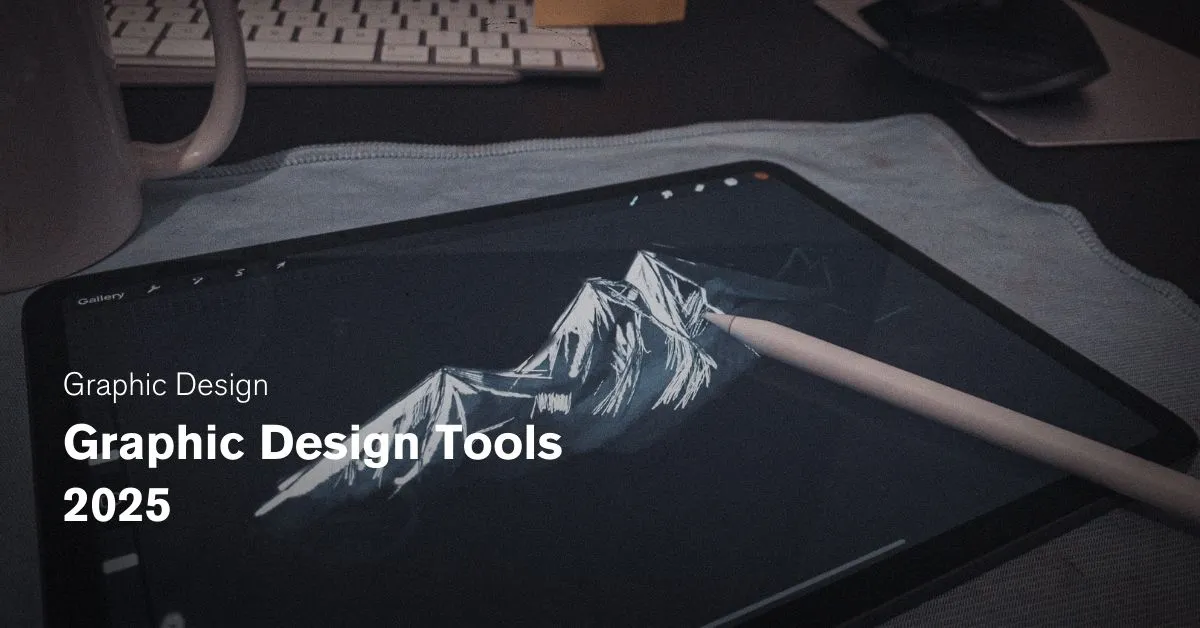Graphic design is evolving at an incredible pace, with AI-driven tools and workflow enhancements reshaping the industry. Whether you’re a professional designer, freelancer, or hobbyist, staying updated with the best graphic design tools 2025 is essential to remain competitive.
In this article, we explore cutting-edge design tools that enhance 3D design, augmented reality, client collaboration, video editing, and UI/UX prototyping.
🚀 1. Vectory – Making 3D Design More Accessible
3D design has traditionally been complex, but Vectory is breaking barriers with an intuitive drag-and-drop interface that allows beginners to create professional-quality 3D visuals without extensive experience.
Why Designers Love It:
✔️ No learning curve: Unlike Blender or Cinema 4D, Vectory simplifies 3D modeling for beginners.
✔️ Web-based platform: No need for high-end hardware – access Vectory from any browser.
✔️ Integrations: Works seamlessly with other design tools like Figma.
How It Benefits You
- Create stunning 3D mockups and product designs effortlessly.
- Expand your creative services without needing to master complex software.
📱 2. Adobe Arrow – Augmented Reality Without Coding
Augmented reality (AR) is no longer a futuristic concept—it’s here to enhance user engagement and brand storytelling. Adobe Arrow enables designers to transform static visuals into interactive AR experiences without any coding skills.
Key Features:
✔️ No-code AR creation – Drag and drop assets to build interactive experiences.
✔️ Perfect for client presentations – Showcase products in AR, boosting engagement.
✔️ Seamless Adobe integration – Works with Photoshop, Illustrator, and After Effects.
How It Benefits You
- Present interactive marketing materials in a unique, engaging way.
- Improve client approvals by allowing them to experience designs in a real-world setting.
💬 3. Zflow & File Stage – Smarter Client Collaboration
Client feedback is a critical part of the design process, but endless email threads and vague comments slow things down. Zflow and File Stage simplify communication with real-time commenting, version tracking, and seamless approvals.
Key Features:
✔️ Centralized feedback management – No more scattered emails.
✔️ Version control – Keep track of revisions and approvals.
✔️ Improved workflow efficiency – Faster response times mean quicker project turnaround.
How It Benefits You
- Eliminate confusion and miscommunication in client projects.
- Increase productivity by streamlining the approval process.
🖌️ 4. Penot – A Budget-Friendly UI/UX Design Alternative
Adobe XD and Sketch dominate the UI/UX design space, but Penot is emerging as a free, open-source alternative with powerful collaboration features.
Key Features:
✔️ Free & open-source – Ideal for freelancers and small teams.
✔️ Customizable UI/UX tools – Adaptable to different design needs.
✔️ Real-time collaboration – Work with teams without expensive software licenses.
How It Benefits You
- Save hundreds of dollars in software subscriptions.
- Collaborate seamlessly with remote teams.
🎥 5. Runway ML – AI-Powered Video Editing & Design
AI is revolutionizing video editing, and Runway ML is leading the charge. This AI-assisted tool automates tedious tasks, allowing designers to focus on creativity instead of repetitive work.
Key Features:
✔️ AI-powered video editing – Automate background removal, motion tracking, and more.
✔️ Time-saving automation – Reduce manual labor on complex tasks.
✔️ Smart content generation – AI helps create graphics and animations instantly.
How It Benefits You
- Edit videos 10x faster with AI automation.
- Enhance social media content and ads effortlessly.
🎨 6. Figma – The Ultimate UI/UX Tool with AI Enhancements
Figma has been a game-changer for UI/UX designers, and with its new AI-powered features, it’s becoming even more powerful.
Key Features:
✔️ AI-assisted layouts – Generate intelligent design suggestions.
✔️ Motion design capabilities – Create dynamic prototypes.
✔️ Cloud collaboration – Work from anywhere with real-time updates.
How It Benefits You
- Speed up wireframing and prototyping with AI-powered layout suggestions.
- Improve team collaboration and client presentations.
📚 Final Thoughts – Staying Ahead in 2025
The future of graphic design is driven by AI, automation, and interactive experiences. To stay competitive:
✅ Explore new tools – Don’t rely on outdated software; leverage AI and AR.
✅ Keep learning – Continuous skill development ensures you stay ahead.
✅ Optimize workflow – Use tools that enhance productivity and efficiency.
By integrating these best graphic design tools of 2025, you’ll boost creativity, streamline projects, and deliver high-quality work faster than ever before.
Ready to level up your design game? Start experimenting with these tools today!
Open Concept Living Spaces: Creating Harmonious Modern Homes
How Self-Confidence Drives Creativity: Unleashing Your Inner Artist
UX Design: Creating Meaningful Digital Experiences in 2025


